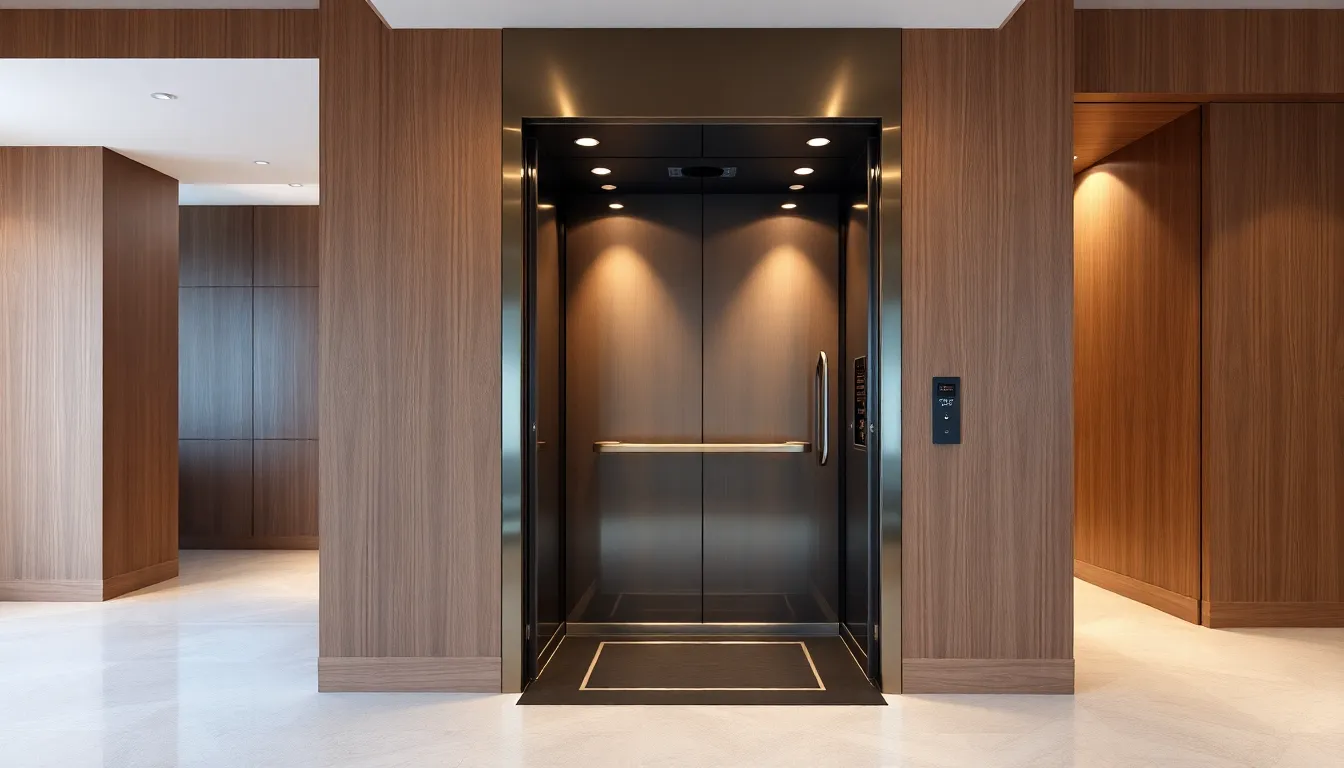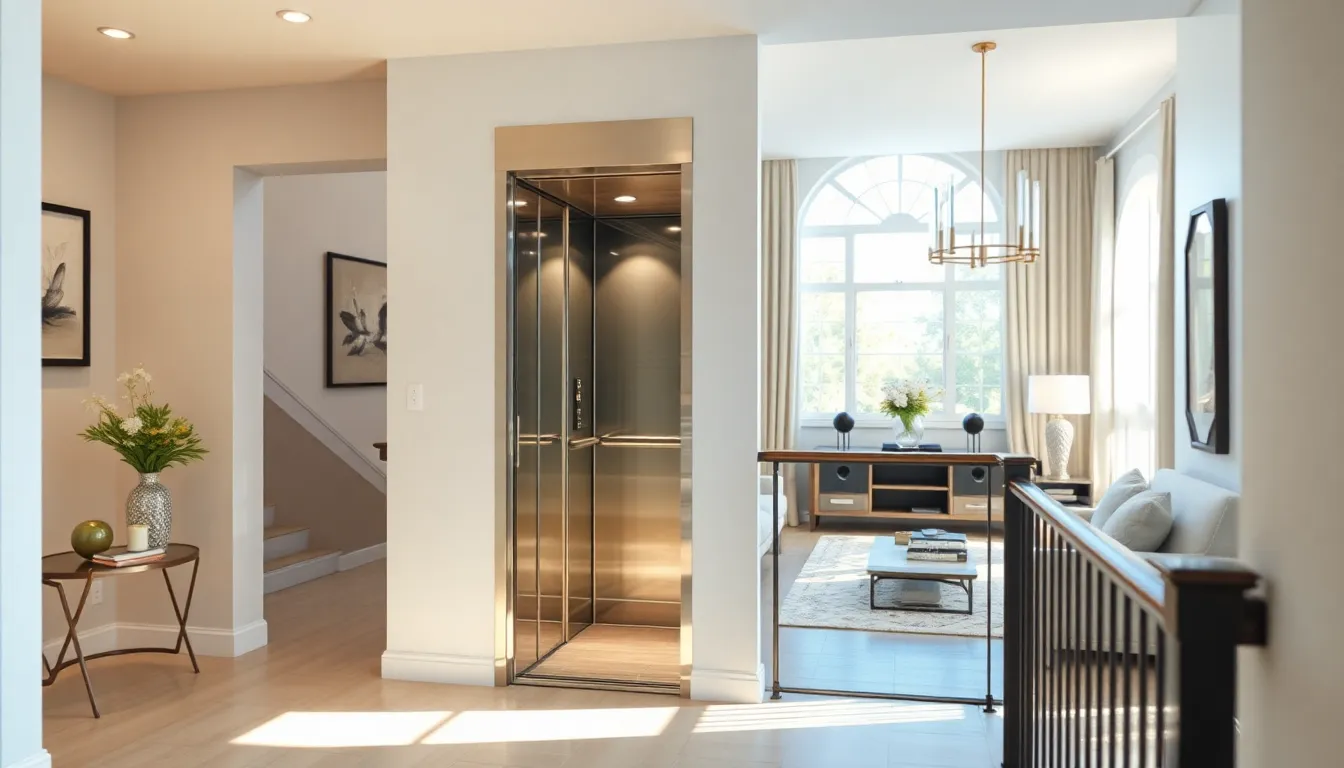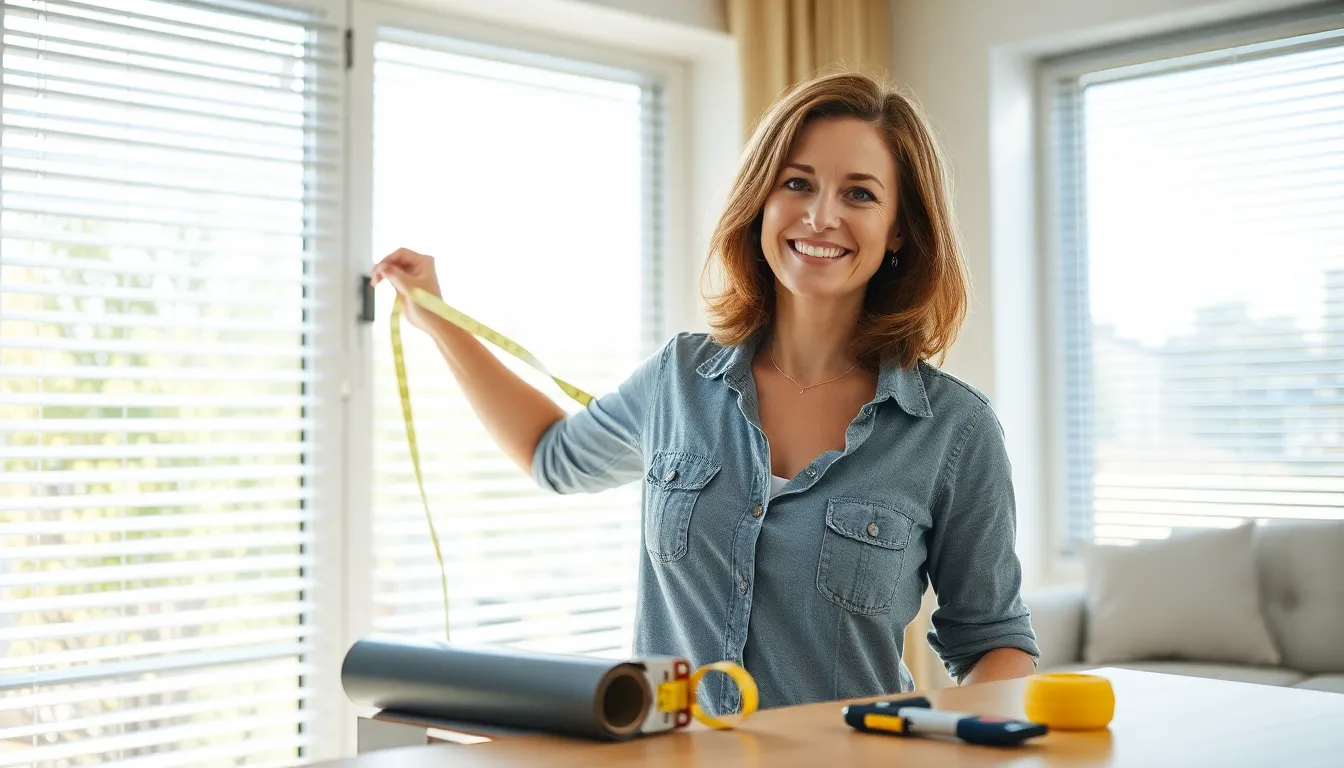Imagine gliding effortlessly between floors in your home, feeling like a VIP every time you step into your very own elevator. It’s not just a luxury; it’s a lifestyle upgrade that can transform your daily routine. But before you start picturing yourself sipping coffee while ascending, let’s talk dollars and cents.
The cost of installing a home elevator can be a bit of a rollercoaster ride. From the type of elevator to installation specifics, prices can vary widely. Don’t worry; this article will break it down for you. By the end, you’ll know whether you’re ready to elevate your living space or if you should stick to the good old-fashioned stairs for a bit longer. After all, who doesn’t love a little suspense in their climb to the top?
Table of Contents
ToggleFactors Influencing Cost of Elevator in Home
Several factors significantly influence the cost of installing an elevator in a home. These include the type of elevator, the location and accessibility, and various installation requirements.
Type of Elevator
Cost varies depending on the elevator type chosen for a home. Traditional hydraulic elevators typically range from $30,000 to $50,000. In contrast, pneumatic elevators generally cost between $25,000 and $40,000. Electric models, with advanced features, might exceed $50,000. Each type offers different benefits and functionalities, which can impact the overall investment.
Location and Accessibility
Location plays a crucial role in determining elevator costs. Elevators installed in multi-story homes often incur higher expenses due to structural modifications. Homes with limited access might require additional excavation or reinforcement, increasing costs significantly. Proximity to necessary power sources and plumbing also affects installation complexity and price.
Installation Requirements
Installation requirements can add to the overall cost of a home elevator. Costs escalate with the need for permits and inspections, commonly required by local building codes. Structural changes to accommodate the elevator add further expenses, especially in older homes. Additionally, customization options, like flooring and lighting features, can significantly impact the final cost, depending on homeowner preferences.
Average Price Ranges

The cost of home elevators varies significantly depending on their type and specific installation requirements. Here’s a breakdown of average prices for different types of elevators.
Hydraulic Elevators
Hydraulic elevators typically cost between $30,000 and $50,000. This price range reflects the complexity of installation and the need for a machine room. They’re suitable for mid-rise homes and provide a smooth ride. Although their initial investment is substantial, hydraulic models are often considered durable and reliable. Maintenance can factor into ongoing costs, but this type usually offers long-term value due to its robust design.
Pneumatic Elevators
Pneumatic elevators fall within a price range of $25,000 to $40,000. These compact elevators use air pressure to move the cab and can fit into small spaces. Those seeking a modern look appreciate their aesthetics and ease of installation. Installation is generally simpler, reducing labor costs. However, the necessary safety features and unique design elements can impact final expenses.
Dumbwaiters
Dumbwaiters usually cost between $10,000 and $20,000. These small freight elevators move items between floors rather than people. Homeowners often consider them for convenience, especially in multi-story homes. Installation requirements are less complex compared to passenger elevators. Overall, dumbwaiters provide an efficient solution for transporting groceries or laundry, presenting a practical alternative with lower costs.
Additional Costs to Consider
Consideration of additional costs provides a more comprehensive understanding of the total investment in a home elevator. Some frequently overlooked expenses may arise, which can impact the overall budget.
Maintenance and Repairs
Regular maintenance ensures the elevator operates efficiently and safely. Hefty maintenance fees typically incur every year, averaging around $200 to $500. These fees depend on the elevator type and manufacturer requirements. Repairs may also arise, with common issues costing anywhere from $100 to $1,500, depending on the extent of damage or needed parts. Scheduling annual inspections, often required for safety compliance, adds another layer of cost. Consequently, budgeting for maintenance and potential repairs is crucial when considering the overall cost of the elevator.
Insurance and Financing Options
Insurance coverage plays a significant role in protecting the investment. Homeowners should check with their insurance provider about policies specific to elevators, which usually require additional coverage. Premiums for added insurance may vary, increasing costs by 10 to 20 percent. Several financing options also exist for funding a home elevator. Personal loans, home equity lines of credit, and specialized financing from elevator companies each offer different terms. Evaluating these options can ensure a smoother financial process, making it easier to manage the costs associated with installing a home elevator.
Benefits of Installing an Elevator in Home
Installing an elevator in a home offers numerous advantages that enhance everyday living. Elevators improve accessibility for all family members, particularly for individuals with mobility challenges.
Increased Accessibility
Accessibility becomes a priority with an elevator. Those who have difficulty using stairs find navigating between floors easier. Elevators cater to people of all ages, including seniors and young children. Families with strollers or heavy items notice significant convenience too. Homes with multi-story designs particularly benefit, as elevators eliminate physical barriers, making spaces more welcoming. Additionally, an elevator can ensure peace of mind for families, knowing their loved ones can move freely.
Enhanced Property Value
Elevators significantly boost a home’s value. Properties featuring home elevators typically attract higher resale prices, appealing to buyers looking for convenience. A home equipped with an elevator sets itself apart in the market, providing a luxurious touch. Potential homeowners value the ease and accessibility that come with an elevator. As the trend for aging in place increases, buyers prioritize homes that accommodate long-term needs. Investing in a home elevator can result in a solid financial return when selling, often offsetting initial installation costs.
Investing in a home elevator can be a game changer for many families. It not only enhances accessibility but also adds significant value to a property. While the initial costs can vary widely based on type and installation specifics, the long-term benefits often outweigh these expenses.
Homeowners should weigh their options carefully and consider factors like maintenance costs and potential insurance impacts. With the right planning and understanding of the financial implications, a home elevator can provide convenience and comfort for years to come. Ultimately, it’s a choice that reflects a commitment to enhancing daily life and future-proofing a home.








